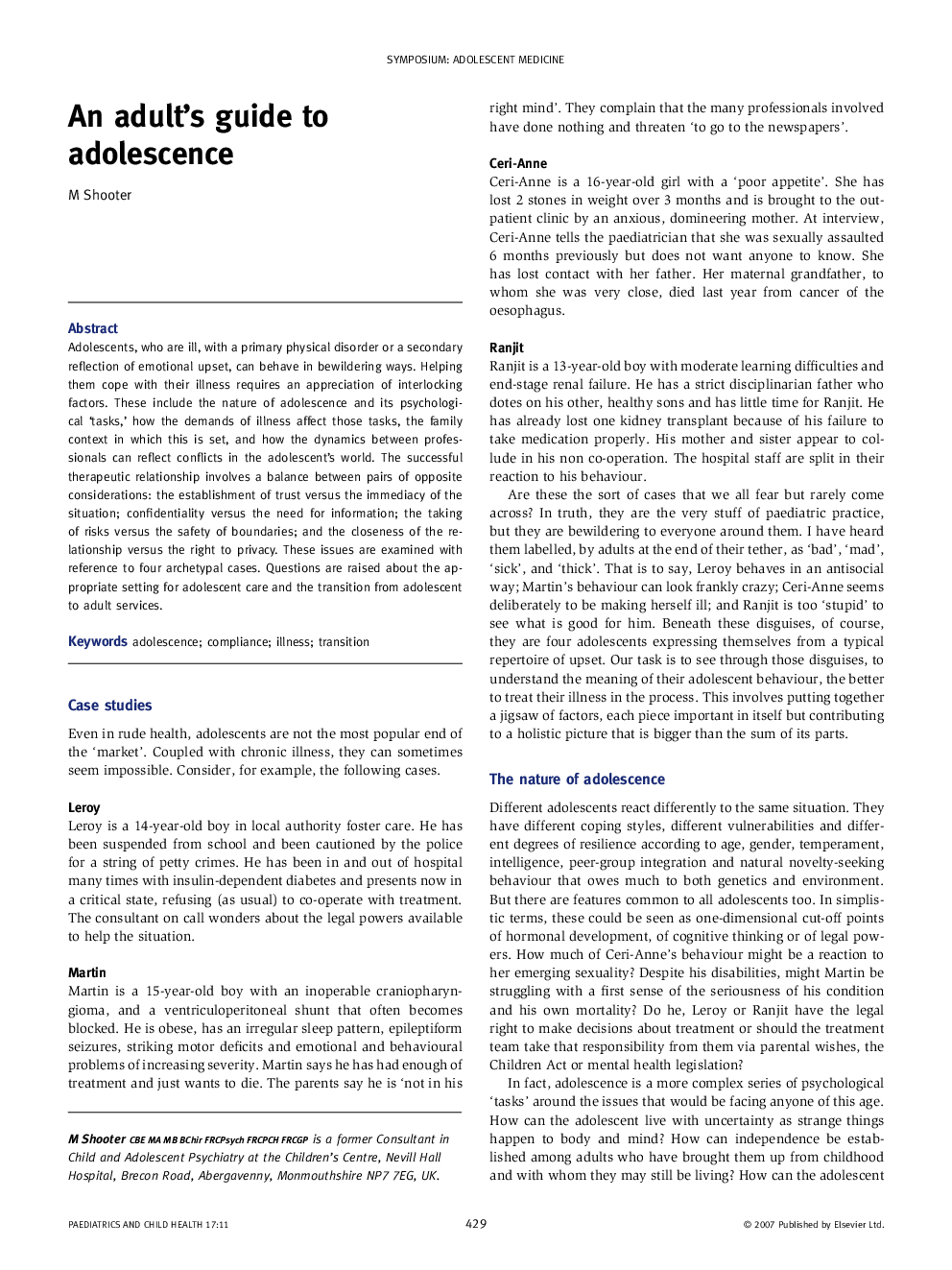| Article ID | Journal | Published Year | Pages | File Type |
|---|---|---|---|---|
| 4173211 | Paediatrics and Child Health | 2007 | 4 Pages |
Adolescents, who are ill, with a primary physical disorder or a secondary reflection of emotional upset, can behave in bewildering ways. Helping them cope with their illness requires an appreciation of interlocking factors. These include the nature of adolescence and its psychological ‘tasks,’ how the demands of illness affect those tasks, the family context in which this is set, and how the dynamics between professionals can reflect conflicts in the adolescent’s world. The successful therapeutic relationship involves a balance between pairs of opposite considerations: the establishment of trust versus the immediacy of the situation; confidentiality versus the need for information; the taking of risks versus the safety of boundaries; and the closeness of the relationship versus the right to privacy. These issues are examined with reference to four archetypal cases. Questions are raised about the appropriate setting for adolescent care and the transition from adolescent to adult services.
